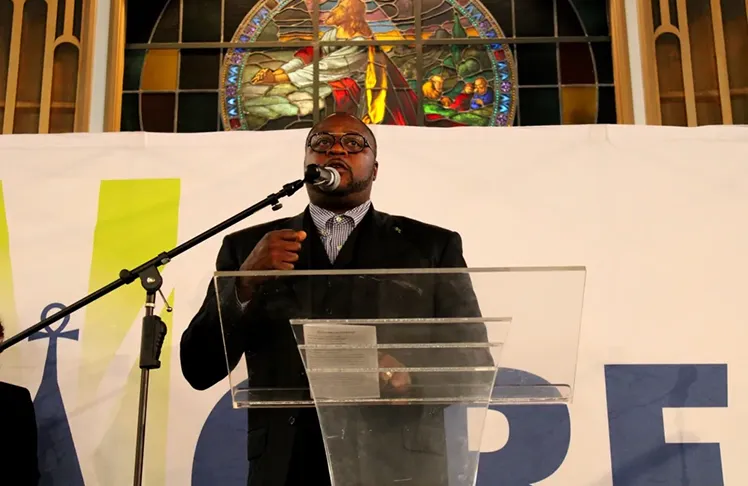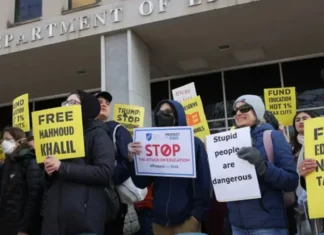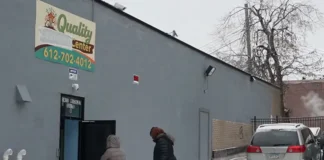
At this year’s Green The Church summit in Atlanta, the message was clear: the climate crisis is already here, and Black folks are bearing the brunt of its devastation.
“Early this year in Los Angeles, wildfires raced through and burned down most of those communities that were Black and brown, that had been legacies for years. Phoenix, Arizona, had 100-degree weather over 200 days straight, and they found homeless people stuck to the sidewalk, said Rev. Lennox Yearwood Jr., president of the Hip Hop Caucus of Washington, D.C., and preacher for the 2025 Green The Church Conference.
“Elders in Houston, Texas, died because it was just too hot. And across the pond in Africa, they had droughts and wildfires wiping out most of their resources. In India, they got so hot that 3 and 4-year-old children were drowning themselves in buckets trying to escape the heat.”
And Yearwood delved deeply into the worst of the news.”I do not want you to not understand that we are in the midst of a climate crisis,” he said.
Faith at the Frontlines of the Climate Crisis
Founded 15 years ago by Rev. Dr. Ambrose Carroll, Green The Church is a national faith-based movement that empowers Black churches to lead in environmental justice, sustainability, and community resilience. The conference theme, South to Power: Harvesting Resilience and Building Wealth and Preparedness in Our Communities, reflects the organization’s commitment toward equipping Black communities with resources and strategies needed to thrive amid climate and economic challenges.
Green The Church works ”to amplify the power of the Black Church in addressing climate change and building sustainable futures,” Carroll said in a statement. “This summit is a homecoming to celebrate progress. Atlanta stands at the crossroads of faith, history, and social transformation — making it the ideal setting for a national conversation about resilience, equity, and climate leadership. In the spirit of the Atlanta Compromise, ‘drop your buckets where you are,’ the Summit will challenge attendees to cultivate solutions rooted in their own communities.”
Black Churches Lead by Example
In Coastal Georgia, Black churches have begun feasibility studies for microgrids, solar installations, and battery systems, partnering with engineering firms and energy justice, The Current reported.
“We understand the importance of doing our part to assist our community in caring for what God has given us,” said the Rev. Thurmond Tillman at one such site assessment. “The earth is the Lord’s, and those of us who dwell in it are responsible for making sure that the right thing is done.”

Students, youth, and ministry leaders also took part in the inaugural Student and Seminary Immersion Experience — a credit-based program designed to empower the next generation of environmental and faith leaders to weave care for the planet into their ministry vision. Breakout sessions included Let’s Go Solar, Urban Agriculture, Environmental Justice, and Cultivating Green Careers.
By centering theology, economic justice, and environmental innovation, the Green The Church Summit aimed to redefine how congregations think about climate and community care. As Rev. Durley reminded attendees, “When you’re a faith-filled person, everyone wins. When you’re greedy, no one wins.”
Building Power and Ownership
Key speakers included Rev. Dr. Willie Francois III, Rev. Dr. Gerald L. Durley, Rev. Dr. Jamal H. Bryant, Rev. Dr. Jacqueline Thompson, and Atlanta’s Chief Sustainability Officer, Chandra Farley.
In his acceptance remarks for an award, Rev. Dr. Bryant turned attention to the intersection of ministry, ownership, and prosperity.
“It is significant that we have more degrees but we own less property, and take more high blood pressure medication than our parents did in 1965,” he said. “Black people are the only people on earth who have housewarming parties for apartments, because we don’t know the value of owning our own property and then multiplying it, so I am grateful to be honored for our work around the [Target] boycott. We remind you, it’s the largest and most significant boycott since the Montgomery Bus Boycott. One of Dr. King’s greatest lamentations is that he never bought a bus at the end of the day.”
He said the real mark of progress “is not how we become better consumers, but how we become better owners.”












